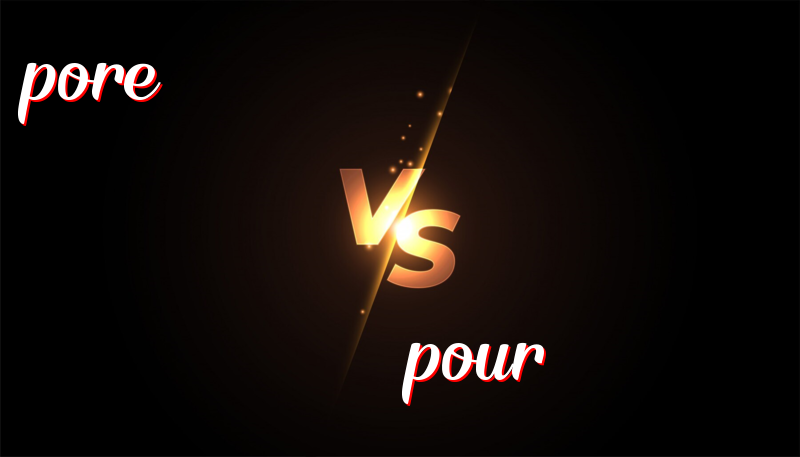Pore versus Pour: Know the Difference
**Pore versus Pour**
In English, we have two words that sound the same but have different meanings: “pore” and “pour.” Let’s learn about them!
**Pore:**
– **History:**
– The word “pore” comes from the Latin word “porus,” which means passage or pore.
– **Usage:**
– A “pore” is a tiny opening in the skin.
– **Trick to Remember the Difference:**
– Think of a “pore” as a small hole in your skin.
**Examples of Pore Usage:**
1. Sarah used a face mask to clean out her skin pores.
2. The plant absorbs water and nutrients through its roots’ pores.
3. A clogged pore can lead to acne breakouts.
4. Microscopes help scientists see cells at the pore level.
5. You have pores all over your body, even on your ears.
**Pour:**
– **History:**
– The word “pour” has French origins.
– **Usage:**
– To “pour” means to transfer a liquid from one container to another.
– **Trick to Remember the Difference:**
– Imagine the liquid “pouring” out of a pitcher.
**Examples of Pour Usage:**
1. Mom asked me to pour milk into my cereal bowl.
2. The bartender will pour you a glass of lemonade.
3. Don’t forget to pour the sauce over the spaghetti before serving.
4. Can you please pour some tea into that cup?
5. I accidentally knocked over the cup, and the water started to pour out.
**Summary:**
– Think of “pore” as a tiny hole in your skin and “pour” as transferring a liquid.
– “Pore” refers to skin openings, while “pour” involves liquids moving.
Understanding the difference between “pore” and “pour” can help you use them correctly in your writing and conversations.

Leave a Reply
You must be logged in to post a comment.